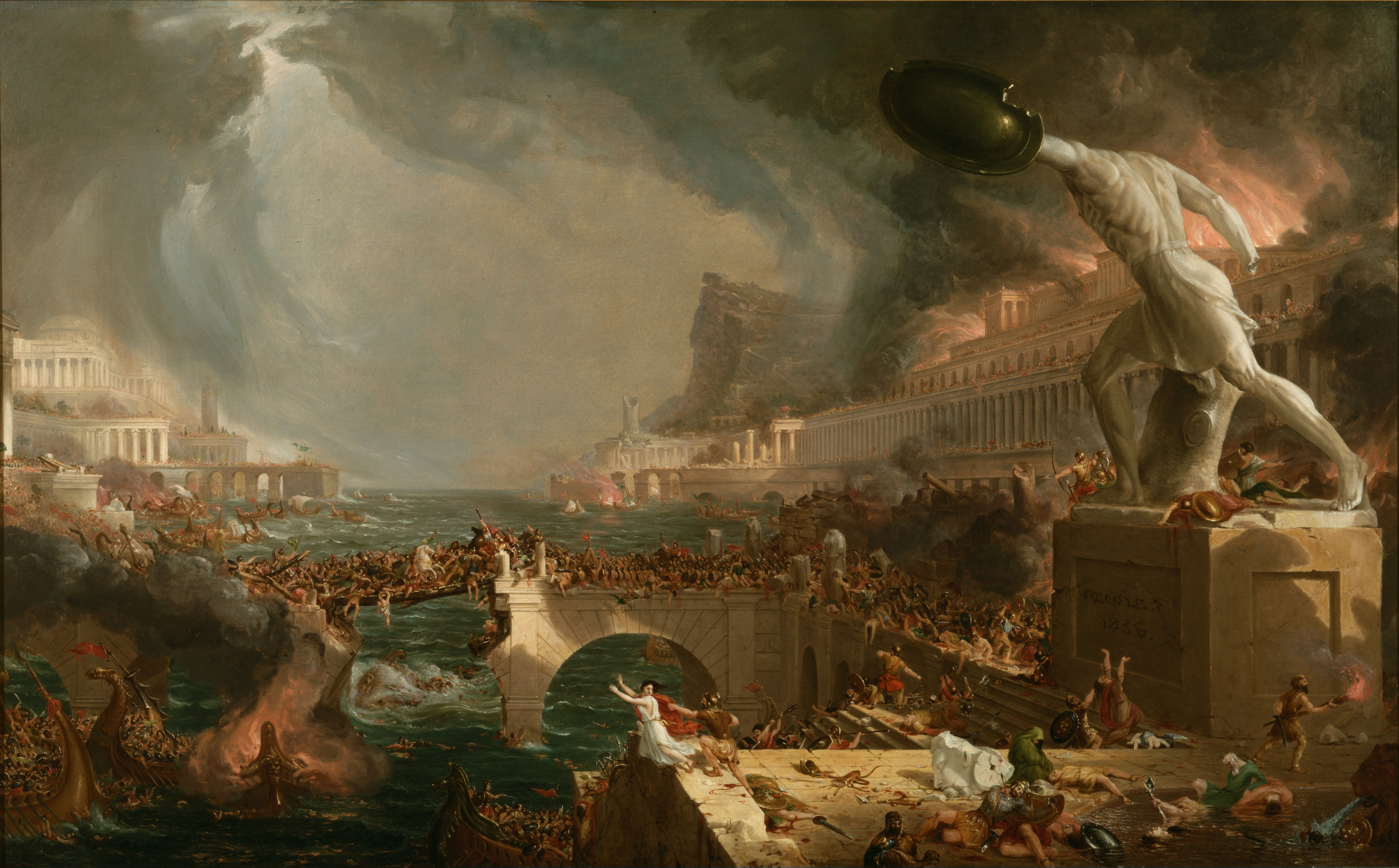
Societal collapse
Societal collapse (also known as civilizational collapse or systems collapse) is the fall of a complex human society characterized by the loss of cultural identity and of social complexity as an adaptive system, the downfall of government, and the rise of violence.[1] Possible causes of a societal collapse include natural catastrophe, war, pestilence, famine, economic collapse, population decline or overshoot, mass migration, incompetent leaders, and sabotage by rival civilizations.[2] A collapsed society may revert to a more primitive state, be absorbed into a stronger society, or completely disappear.
Virtually all civilizations have suffered such a fate, regardless of their size or complexity, but some of them later revived and transformed, such as China, Greece, and Egypt. However, others never recovered, such as the Western and Eastern Roman Empires, the Maya civilization, and the Easter Island civilization.[1]
Anthropologists, (quantitative) historians, and sociologists have proposed a variety of explanations for the collapse of civilizations involving causative factors such as environmental change, depletion of resources, unsustainable complexity, invasion, disease, decay of social cohesion, rising inequality, long-term decline of cognitive abilities, loss of creativity, and misfortune.[1][3][4] However, complete extinction of a culture is not inevitable, and in some cases, the new societies that arise from the ashes of the old one are evidently its offspring, despite a dramatic reduction in sophistication.[3] Moreover, the influence of a collapsed society, such as the Western Roman Empire, may linger on long after its death.[5]
The study of societal collapse, collapsology, is a topic for specialists of history, anthropology, sociology, and political science. More recently, they are joined by experts in cliodynamics and study of complex systems.[6][3]
Concept[edit]
Joseph Tainter frames societal collapse in The Collapse of Complex Societies (1988), a seminal and founding work of the academic discipline on societal collapse.[7] He elaborates that 'collapse' is a "broad term," but in the sense of societal collapse, he views it as "a political process."[8] He further narrows societal collapse as a rapid process (within "few decades") of "substantial loss of sociopolitical structure," giving the fall of the Western Roman Empire as "the most widely known instance of collapse" in the Western world.[8]
Others, particularly in response to the popular Collapse (2005) by Jared Diamond[9] and more recently, have argued that societies discussed as cases of collapse are better understood through resilience and societal transformation,[10] or "reorganization", especially if collapse is understood as a "complete end" of political systems, which according to Shmuel Eisenstadt has not taken place at any point.[11] Eisenstadt also points out that a clear differentiation between total or partial decline and "possibilities of regeneration" is crucial for the preventive purpose of the study of societal collapse.[11] This frame of reference often rejects the term collapse and critiques the notion that cultures simply vanish when the political structures that organize labor for large archaeologically prominent projects do. For example, while the Ancient Maya are often touted as a prime example of collapse, in reality this reorganization was simply the result of the removal of the political system of Divine Kingship largely in the eastern lowlands as many cities in the western highlands of Mesoamerica maintained this system of divine kingship into the 16th century. The Maya continue to maintain cultural and linguistic continuity into the present day.